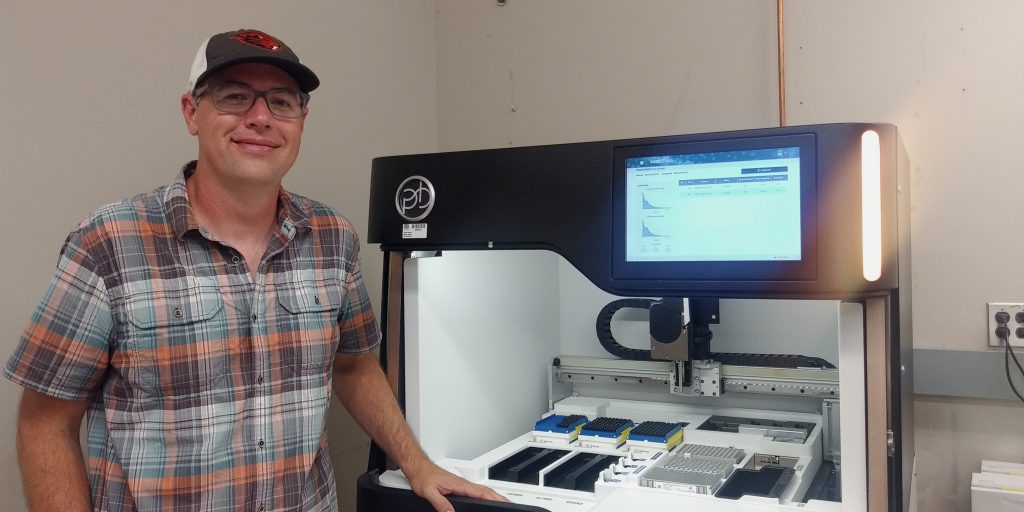Aaron Trippe discusses the changes and challenges of working with the PacBio Sequel since 2016. He discusses improvements in the technology since 2016 and has advice for user who would like to utilize this service.

Q1: How long have you been running the PacBio sequencing service at the CGRB?
The CGRB was one of the early adopters of the Sequel, the second phase of long read genomic sequencing technology from Pacific Biosciences. It arrived here on campus in August of 2016. Since then the technology has made significant improvements to the user-interface, and has tremendously increased read lengths and output.
Q2: You started up the PacBio sequencing service at the CGRB. What has been the most challenging aspect about developing this service?
Aside from the continually changing and evolving technology, one of the most challenging aspects of the service is getting everything you feed the machine to produce optimal results. One of the advantages of the technology is that you are sequencing native DNA, but that also makes it challenging when working with an organism that traditionally is difficult to work with and considered problematic. Finding ways to produce super clean and high molecular weight DNA from just about everything is probably the largest hurdle to working with the technology as a service provider. The keys to success are definitely within the sample quality. Having pure, high molecular weight DNA is essential to take advantage of the long read aspect of the technology, and is directly correlated to the quality of the sequencing output.
Q3: What type(s) of project(s) would you recommend to use PacBio’s long read technology?
The technology is great for just about any sequencing application. With the long reads, you have access to regions of DNA that were not previously accessible due to repetitive regions in genomic DNA. There is enough output to multiplex several microbial genomes on a single SMRT Cell. Complete sequences of multiplexed amplicons using Circular Consensus Sequencing for high fidelity reads of shorter inserts. With the read lengths exceeding that of RNA transcripts, Isoform sequencing using the Iso-seq application is also available for obtaining complete transcripts.
Q4: Favorite or most interesting project you’ve worked on?
Since managing the PacBio Sequel, I’ve gotten to work with plants, animals (vertebrates/invertebrates), fungi, bacteria, and insects for the local scientific community, and beyond. I can’t say that I have had a favorite organism, and they have all been interesting projects, but overcoming challenges with successful results always feels rewarding.
For more information please visit the CGRB website: https://cgrb.oregonstate.edu/core/pacbio
Note: We wish Aaron the best as he purses a new opportunity and are grateful he was able to develop a successful PacBio Service at the CGRB! For future sequencing inquires please contact Katie Carter.
